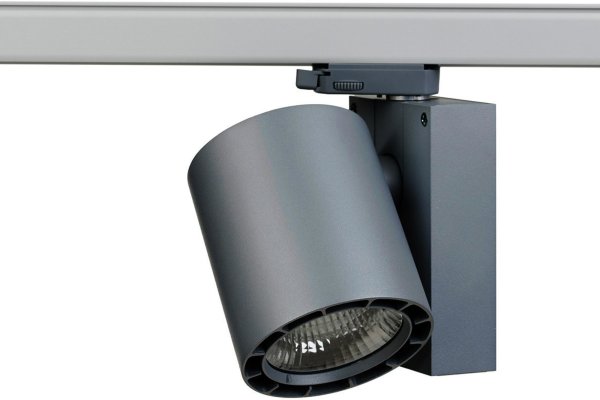
What is IPTV ? Benefits and Classification of IPTV
On November 27, 2021 by Morthe StandardAccording to the International Telecommunication Union Focus Group, IPTV is defined as follows:
IPTV is defined as multimedia services such as television/video/audio/text/graphics/data delivered over IP (Internet Protocol) based networks that provide the required level of quality and customer experience, security, interactivity, and reliability”.
A technique or system through which television services are delivered or broadcast with the help of Internet Protocol Suite. It uses packet switching networks such as the internet in contrast to traditional terrestrial, satellite, and cable television formats.
Table of Contents
Classification Of IPTV:
Live Streaming:
A live stream is a live broadcast that occurs as it happens. It is similar to watching live television on a computer screen when you are broadcasting media content. Live television doesn’t allow us to pause or skip over the broadcast that isn’t at all interesting.
On Demand, You Can Watch The Following Video:
Video on demand can also be viewed at any time, just like a playlist. As part of video-on-demand, video clips and episodes are arranged by titles and categories such as news, sports, and music videos.
Why IPTV?
IPTV has become one of the most popular and trendy services in recent years, and its popularity rate is increasing rapidly, and it has supplanted the traditional model of television. These are the major reasons why Svensk IPTV is widely adopted by users in the modern era.

- Broadband’s widespread use and flexible adoption
- Accessible internet that is user-friendly
- Data, voice, video, and communication services provided by cable and traditional telephone companies are becoming more competitive
Benefits Of IPTV:
IPTV has the advantage that it can be easily integrated with different devices, including IP-based devices such as VoIP and high-speed internet
- IPTV utilizes existing or available computer networks, so no cables are required
- Video and audio from live as well as pre-recorded sources are distributed via pre-existing networks
- In IPTV, content stays in the network, and only the content selected by the user is delivered to the user
- Due to its user-friendly nature and higher functionality, IPTV allows consumers to select what they want to watch, which is distinct from traditional broadcast services.
- In IPTV services, there is always two-way communication, so the consumer can always request viewing videos according to their interests.
- There is an interesting feature of IPTV, it has a user manual that is electronically configured. Electronic Program Guides (EPG) and Personal Video Recorders (PVR) are fully configurable according to consumer needs.
- Easily compatible with all devices, TVs, LCDs, it is able to deliver quality video in digital format
- As well as being cost-effective, IPTV is also robust and scalable
- It is user-friendly and always allows the user to move around the display units, when they are connected to the nearest IT network point.
With these amazing features, IPTV is gaining popularity. An IPTV’s popularity can be mainly attributed to the above-mentioned features. As a result of its flexible features and user-friendly features, IPTV is expected to continue gaining popularity and deliver more benefits to consumers compared to traditional television services.
You may also like
Popular Posts
 Leveraging GenAI for Faster and Smarter Product Engineering
Leveraging GenAI for Faster and Smarter Product EngineeringErfan Khoshnazar: A Global Education Influencer Empowering Students for the Digital Era
The Importance of Air Pollution Monitoring
Unlocking Efficiency: A Visual Guide to Enhancing Student Registration with WebLOAD and Ellucian Banner
 Optimal Mobile Experience Mastering Mobile Optimization and Responsive Design
Optimal Mobile Experience Mastering Mobile Optimization and Responsive Design PSPO-II Exam Dumps: Unlock Your Success
PSPO-II Exam Dumps: Unlock Your Success LED Stromschienenstrahler und 3 Phasen Schienenstrahler
LED Stromschienenstrahler und 3 Phasen Schienenstrahler What Makes Mini Supvan Printer Better?
What Makes Mini Supvan Printer Better? LP5120M Continuous Thermal Labels Use in Different Industries
LP5120M Continuous Thermal Labels Use in Different Industries Supvan Print Label: The Ultimate Tool for Labeling Needs
Supvan Print Label: The Ultimate Tool for Labeling Needs What are the Benefits of Using MFi-Certified Cables and Chargers for Your iPhone?
What are the Benefits of Using MFi-Certified Cables and Chargers for Your iPhone? Ways Smartphones Can Be Used for Learning
Ways Smartphones Can Be Used for Learning Best Tips To Prepare for an Interview
Best Tips To Prepare for an Interview Installation of H7 LED Headlight Bulb: A Piece of Cake or An Uphill Battle
Installation of H7 LED Headlight Bulb: A Piece of Cake or An Uphill Battle Honor 70 Review Among Best 5g Phones Of 2022
Honor 70 Review Among Best 5g Phones Of 2022
Latest Posts
 Bytgem and the Rise of Online Product Raffles: How Aussies Are Scoring Big
Bytgem and the Rise of Online Product Raffles: How Aussies Are Scoring Big Timeless Sparkle: Choosing Between Sapphire and Diamond
Timeless Sparkle: Choosing Between Sapphire and Diamond How to Convert Leads with Ease
How to Convert Leads with Ease Experience Top-Notch CNC Turning Services at RADMOT
Experience Top-Notch CNC Turning Services at RADMOT Slot Online Maxwin: Your Path to Jackpot Thrills
Slot Online Maxwin: Your Path to Jackpot ThrillsUnlocking the Potential of AI: A Glimpse into the Future
Exciting Developments in Peterborough: A Snapshot of Recent News
 Exploring “The Georgia Bulletin”: A Beacon of Faith and Community
Exploring “The Georgia Bulletin”: A Beacon of Faith and Community The Evolution of Media and Journalism: Navigating the Digital Age
The Evolution of Media and Journalism: Navigating the Digital AgePolitical Turmoil Grips Sri Lanka as Economic Challenges Mount
Exploring TheMaineChronicle.com: A Dive into Media and Journalism
Trump in the News: The Continuing Influence and Controversy
Russia Latest News: Unraveling Developments from the Largest Country on Earth
 Russia Latest News: A Comprehensive Overview of Current Developments
Russia Latest News: A Comprehensive Overview of Current Developments Russia Latest News: Key Developments in 2024
Russia Latest News: Key Developments in 2024
Featured Posts
 Unleashing AI Power for Small Business Marketing Success
Unleashing AI Power for Small Business Marketing Success Pourquoi Choisir Une Structure En Acier Pour Vos Projets En Afrique ?
Pourquoi Choisir Une Structure En Acier Pour Vos Projets En Afrique ? Top IPTV France Providers: Finding the Best Service for You
Top IPTV France Providers: Finding the Best Service for You The Importance of Innovation Management in Business Success
The Importance of Innovation Management in Business Success How to Measure Lab Diamond Ring Size
How to Measure Lab Diamond Ring Size Web hosting plan: pro and cons of shared hosting and VPS hosting
Web hosting plan: pro and cons of shared hosting and VPS hosting White Sapphire vs. Diamond: The Ultimate Comparison
White Sapphire vs. Diamond: The Ultimate Comparison How Pawnbroking Works: A Step-by-Step Guide to Pawn Loans
How Pawnbroking Works: A Step-by-Step Guide to Pawn Loans GH Express LLC: Your Strategic Partner for Business Success in the U.S.
GH Express LLC: Your Strategic Partner for Business Success in the U.S.Novita Diamonds Shines a Light on Women’s Empowerment with Dress for Success Partnership
Buying Ethereum Down Under: Your Guide to Purchasing ETH in Australia
 Exploring the Brilliance of Lab-Grown Diamonds: Understanding the 4Cs
Exploring the Brilliance of Lab-Grown Diamonds: Understanding the 4Cs Lab Diamonds: The Top Choice for Ethical, Affordable, and Sustainable Brilliance
Lab Diamonds: The Top Choice for Ethical, Affordable, and Sustainable Brilliance SEO Backlink Services and Template Customization by a Pennsylvania SEO Expert
SEO Backlink Services and Template Customization by a Pennsylvania SEO Expert The Sparkle of Sustainability: Lab Grown Diamonds Adelaide
The Sparkle of Sustainability: Lab Grown Diamonds Adelaide
